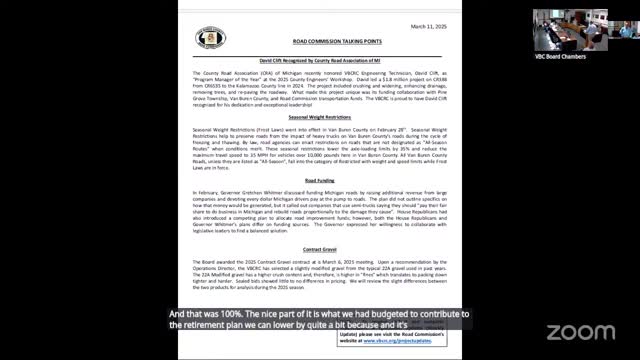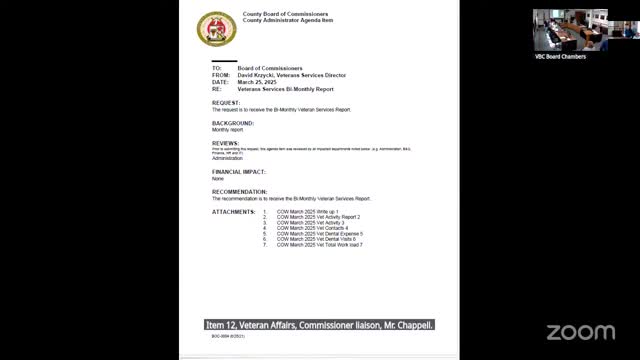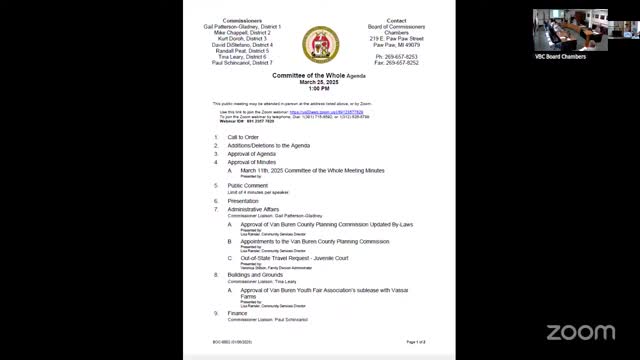Article not found
This article is no longer available. But don't worry—we've gathered other articles that discuss the same topic.

Van Buren County road officials report frost-law restrictions, gravel work and federal funding uncertainty

Van Buren County veterans office reports cut to state grant; dental and relief programs face reductions

Van Buren County commissioners back Brownfield plan for Hazen Street housing project, set public hearing

